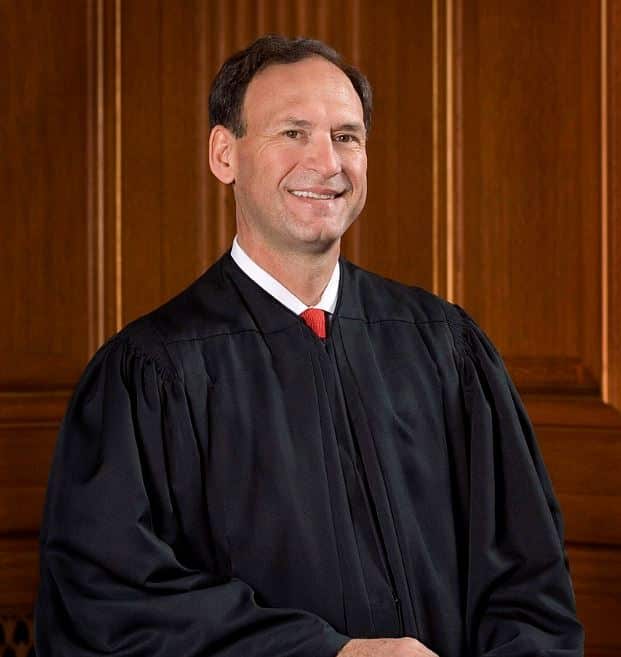Supreme Court Rules ‘Miranda’ Violation Not Grounds for Civil Rights Claim

WASHINGTON — For two generations, the words “you have the right to remain silent,” had been such a reliable part of American life — not to mention innumerable cop shows and movies — that they had almost become a cliche.
It was the outcome of a landmark 1966 ruling by the Supreme Court, in which the justices held the Fifth Amendment prevents prosecutors from using a person’s statements in response to questions while in police custody to be used against them, unless they were informed of their right against self-incrimination.
At the time, the ruling in Miranda v. Arizona was considered a radical departure. Prior to the codification of Miranda rights, the Fifth Amendment was generally considered a protection from being forced to confess to a crime.
But in no time, the warning, “You have the right to remain silent and refuse to answer questions. Anything you say may be used against you in a court of law. You have the right to consult an attorney before speaking to the police and to have an attorney present during questioning now or in the future,” became part of routine police procedure.
That may all have changed on Thursday, when a divided Supreme Court shielded police from being sued by suspects for failing to read them the well-known Miranda warnings.
The underlying case involved Terence Tekoh, who worked as a patient transporter for a Los Angeles, California, hospital.
After a patient accused him of sexual assault, hospital staff reported the allegation to the Los Angeles Sheriff’s Department. Deputy Carlos Vega was then dispatched to the hospital to take Tekoh’s statement.
Vega and Tekoh have since given diverging accounts of what happened when they met, but the one undisputed fact is Vega did not inform Tekoh of his Miranda rights prior to questioning him.
Tekoh was arrested and charged in California state court, but a jury returned a verdict of not guilty.
Following the acquittal on the criminal charge, Tekoh sued Vega under 42 U.S.C. §1983 — the civil rights statute at issue in the case — alleging the deputy violated his Fifth Amendment right against self-incrimination by taking his statement without first advising him of his Miranda rights.
The lower court found for Vega, but the 9th U.S. Circuit Court of Appeals vacated that decision, ruling that a violation of Miranda constitutes a violation of the Fifth Amendment right against compelled self-incrimination.
Writing for the majority in the 6-3 decision, Justice Samuel Alito said that conclusion is simply wrong.
“Miranda itself and our subsequent cases make clear that Miranda imposed a set of prophylactic rules,” Alito wrote. “Those rules, to be sure, are ‘constitutionally based,’ but they are prophylactic rules nonetheless.
“Miranda itself was clear on this point. Miranda did not hold that a violation of the rules it established necessarily constitute a Fifth Amendment violation, and it is difficult to see how it could have held otherwise,” the justice continued. “For one thing, it is easy to imagine many situations in which an unMirandized suspect in custody may make self-incriminating statements without any hint of compulsion.
“In addition, the warnings that the court required included components, such as notification of the right to have retained or appointed counsel present during questioning, that do not concern self-incrimination per se but are instead plainly designed to safeguard that right. And the same is true of Miranda’s detailed rules about the waiver of the right to remain silent and the right to an attorney.
“At no point in the opinion did the court state that a violation of its new rules constituted a violation of the Fifth Amendment right against compelled self-incrimination. Instead, it claimed only that those rules were needed to safeguard that right during custodial interrogation,” Alito said.
In essence, the majority’s position was a reminder of Justice Byron White’s dissent from the original Miranda ruling.
“The proposition that the privilege against self-incrimination forbids in-custody interrogation without the warnings specified in the majority opinion and without a clear waiver of counsel has no significant support in the history of the privilege or in the language of the Fifth Amendment,” he wrote at the time.
Writing in dissent 56 years later, Justice Elena Kagan said Thursday that the central question in the case before the court was whether Miranda’s protections are a “right” that is “secured by the Constitution.”
“If the answer is yes, then a person may sue a state actor who deprives him of the right,” she said.
“Today, the court strips individuals of the ability to seek a remedy for violations of the right recognized in Miranda,” she continued. “The majority observes that defendants may still seek ‘the suppression at trial of statements obtained’ in violation of Miranda’s procedures.
“But sometimes, such a statement will not be suppressed. And sometimes, as a result, a defendant will be wrongly convicted and spend years in prison,” she said. “He may succeed, on appeal or in habeas, in getting the conviction reversed. But then, what remedy does he have for all the harm he has suffered? The point of §1983 is to provide such redress — because a remedy ‘is a vital component of any scheme for vindicating cherished constitutional guarantees.’”
Dan can be reached at [email protected] and @DanMcCue
























